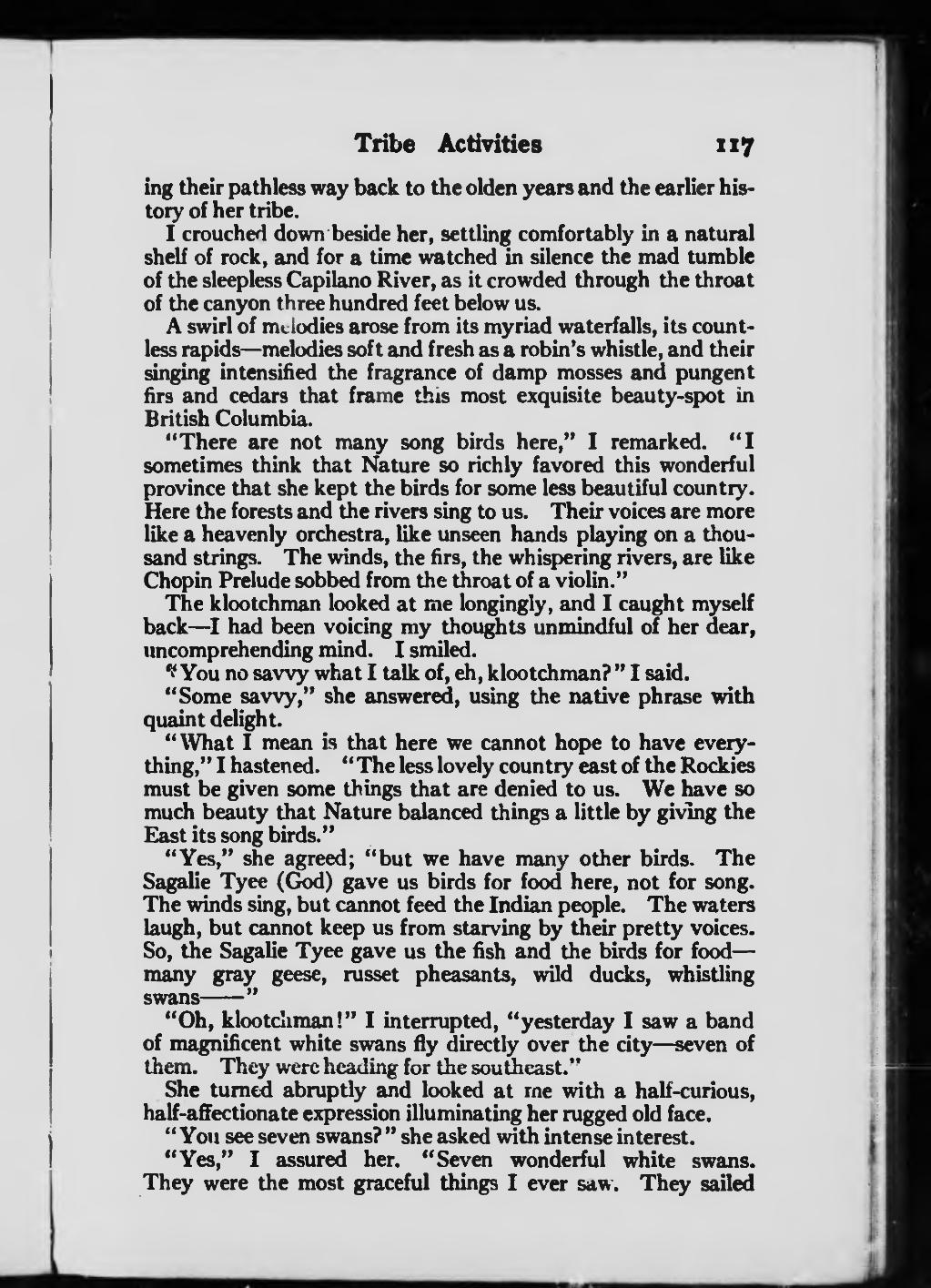Tribe ActMtieg ing their pathless way mk to the olden yean and the eariier hift> tonr of her tribe. I crouched down beside her, settling comfortably in a natural shelf of rock, and for a time watched in silence the mad tumble of the sleepless Capilano River, as it crowded through the throat of the canyon three hundred feet below us. A swirl of melodies arose from its myriad waterfalls, its count- less rapids — melodies soft and fresh as a robin's whistle, and their singing intensified the fragrance of damp mosses and pungent firs and cedars that frame this most exquisite beauty-qwt in British Columbia. "There are not many song birds here," I remarked. "I sometimes think that Nature so richly favored this wonderful province that she kept the birds for some less beautiful country. Here the forests and the rivers sing to us. Their voices are more like a heavenly orchestra, like unseen hands playing on a thou- sand strings. The winds, the firs, the whispering rivers, are like Chopin Prelude sobbed from the throat of a violin." The klootchman looked at me longingly, and I caught myself back — I had been voicing my thoughts unmindful of her dear, uncomprehending mind. I smiled. You no savvy what I talk of, eh, klootchman? " I said. "Some savvy," she answered, using the native phrase with quaint delight. " What I mean is that here we cannot hope to have every- thing," I hastened. "The less lovely country east of the Rockies must be given some things that are denied to us. We have so much beauty that Nature balanced things a Uttle by giving the East its song birds." "Yes," she agreed; "but we have many other birds. The Sagalie Tyee (God) gave us birds for food here, not for song. Hie winds sing, but cannot feed the Indian people. The waters laugh, but cannot keep us from starving by their pretty voices. So, the Sagalie Tyee gave us the fish and the birds for food — many gray geese, russet pheasants, wild ducks, whistling swans " "Oh, klootchman 1" I interrupted, "yesterday I saw a band of magnificent white swans fly directly over the city — seven of them. They were heading for the southeast." She turned abruptly and looked at me with a half-curious, half-affecti<»iate expression illuminating her rugged old hcc. " You see seven swans? " she asked with intense interest. "Yes," I assured her. "Seven wonderful white swans. Th^ were the most giaceful things I ever saw. Th^ sailed
Stránka:roll 1916.djvu/141
Z thewoodcraft.org
Tato stránka nebyla zkontrolována
